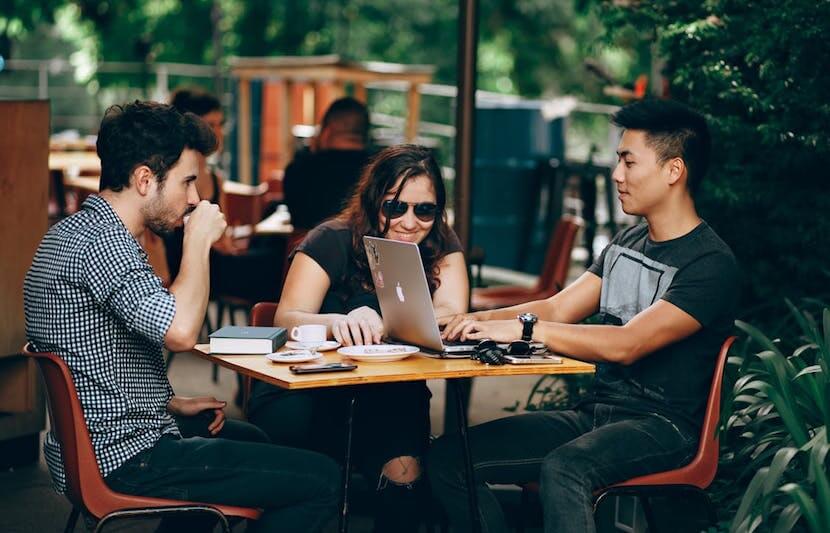Coffee drinkers, particularly college students who live on coffee, will be happy to learn that the secret to good teamwork lies in a cup of coffee.
In a set of two experiments, researchers from The Ohio State University found that drinking coffee before completing a group task increases alertness, leading to more focused work and more positive reviews of the group’s performance.
The study is published in the Journal of Psychopharmacology.
While previous research has examined coffee’s effect on individual performance, the OSU study is the first to explore the relationship between caffeine and teamwork.
“Prior literature has explored the effects of caffeinated coffee on individuals but how consuming coffee affects groups was missing,” said Amit Singh, a doctoral student in marketing at OSU’s Fisher College of Business and co-author of the study. “Given that coffee gets served at majority of office meetings, group projects and deal makings; we wanted to explore this area.”
First study
In one study, the researchers gathered 72 undergraduate students who identified as coffee drinkers and asked them not to drink coffee before the experiment.
Half of the participants were selected to participate in a coffee-tasting task at the beginning of the experiment. This group was split into separate groups of five, given a cup of coffee and assigned 30 minutes of filler tasks to let the effects of the caffeine settle in.
The other half of the participants did a coffee tasting at the end of the experiment.
Each group was then instructed to read about and discuss the Occupy movement, an international political movement against social and economic inequality.
The researchers selected the Occupy movement as a topic of conversation for its uniquely controversial subject matter.
“We chose the Occupy movement because we wanted participants to go through a discussion with arguments from both sides, mimicking a real-life group task,” said Singh. “More specifically, we wanted some disagreements to be generated and hence, we chose the topic as it had the potential to generate arguments from two sides.”
After a 15-minute discussion, the group members were asked to evaluate their performance on the task, as well as that of the group as a whole.
The participants who drank coffee beforehand were found to have rated themselves and their team members more positively than those who did not.
Second study
A second study mimicked the first, with one critical difference. Half of the 61 participants were given a cup of decaffeinated coffee and half were given a cup of caffeinated coffee.
Following the results from the first study, participants who drank caffeine beforehand rated their performance more positively than those who decaf.
The participants in the second study were also asked to rate how well their group stayed on topic.
The results demonstrated that drinking caffeine tended to encourage people to discuss more relevant subject matter.
More alert
The participants also reported their levels of alertness after partaking in the experiment.
The researchers believe that the results can be attributed to higher levels of alertness reported by those who drank caffeine.
They found that those who drank caffeinated coffee tended to report higher levels of alertness.
They also found that high levels of alertness corresponded with better marks to team members.
“We found that increased alertness was what led to the positive results for team performance,” Singh said in a statement. “Not surprisingly, people who drank caffeinated coffee tended to be more alert.”
This suggests that for coffee and non-coffee drinkers alike, other activities that increase alertness could have a similar effect. In particular, the researchers noted that exercise has been found to similarly increase alertness levels.
What’s next?
The researchers plan to further this study to explore the extent to which coffee can improve teamwork.
“We would like to investigate what happens when the complexity of the group task is increased,” said Singh. “More specifically, what would happen if we increase the number of disagreements by employing a topic that is more controversial than the analytic component such as data analysis, problem-solving, statistical problems, coding, etc.?”



